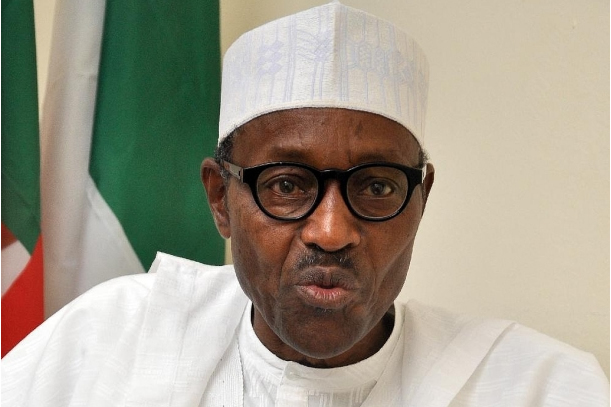Latest News
NBS report shows Nigeria is hardly making progress in anti-corruption

News Highlight
While the prevalence of bribery may have decreased, NBS said the frequency of bribe-paying has not.
The National Bureau of Statistics (NBS) released on Friday its second survey on bribery and other forms of corruption. The report, titled "Corruption in Nigeria: Patterns and Trends," provides the actual experiences of Nigerians in the course of their different interactions with public officials in the country.
According to the 2019 survey, roughly 117 million bribes are paid in Nigeria on a yearly basis. This translates to a total of around N675 billion paid in cash bribes to public officials in 2019, at an average bribe size of N5,754. The NBS said the total amount corresponds to 0.52 per cent of the Gross Domestic Product (GDP) of Nigeria.
The survey, which was conducted in May and June 2019 in collaboration with the United Nations Office on Drugs and Crime and UK Aid, covered more than 33,000 households across the 36 states and the Federal Capital Territory. According to the NBS, the results of the survey will provide the government and the Nigerian people with an opportunity to assess progress that has been made with anticorruption, the framework for evaluating the impact of related progress, and also identify possible gaps in the anti-corruption agenda.
The report finds bribery in Nigeria is slightly less prevalent than it was three years ago when the first survey was conducted in 2016. 30.2 per cent of all Nigerians who had at least one contact with a public official in the 12 months prior to the latest survey paid a bribe to, or were asked to pay a bribe by, a public official. This is slightly lower than the 32.3 per cent reported in the first survey.
While the prevalence of bribery may have decreased, NBS said the frequency of bribe-paying has not. Nigerian bribe-payers reportedly paid an average of six bribes in the 12-month period prior to the latest survey. The frequency has not changed much from the average of 5.8 bribes paid per bribe-payer in 2016.
The rationale for paying bribes in a lot of the cases (38 per cent) is to fast-track procedures. Other respondents (21 per cent) paid bribes to avoid the payment of a fine. When confronted with a bribe request, only one in five Nigerians (19 per cent) refused to pay bribe in 2019, compared to 16 per cent in 2016. As a backlash, 48 per cent of respondents in the 2019 survey who refused to pay a bribe reported suffering negative consequences. However, those who suffered repercussion for refusal to pay bribes in the previous survey were much higher at 56 per cent.
Also, bribery reporting is quite low. Out of all citizens who had to pay a bribe in 2019, only 3.6 per cent reported their latest bribe payment.
"As in the 2016 survey, the vast majority of Nigerians who paid bribes in 2019 did not report their experience to an official institution. Only 3.6 per cent of all bribe-payers reported their latest bribe payment to an official institution capable of conducting an investigation, meaning that the bribery reporting rate remained virtually unchanged from 2016 when it was 3.7 per cent," NBS wrote in the report.
NBS said the low level of bribery reporting is because most people (51 per cent) who reported a bribery incident either got no follow-up, they were discouraged from reporting or they suffered negative consequences.
The report also found that bribery is much less prevalent and less frequent in the private sector than in the public sector. The prevalence of private sector bribery in 2019 was 5.7 per cent, while the prevalence of public sector bribery was 30 per cent. Meanwhile, the frequency of bribery paid to private sector and public sector employees this year was 3.3, versus 6.0, respectively.
The survey highlights that cash continues to be the dominant type of bribe, with more than 93 per cent of all bribes in 2019 paid in cash, a slightly larger share than in 2016.
NBS also said as much as 86 per cent of Nigerians said they perceived electoral fraud would happen either very frequently or fairly frequently in the country. In fact, 21 per cent of adult Nigerians reported they were personally offered money or a favour in exchange for their vote in the last general election.
"Overall, the survey has shown that the fight to eradicate corruption needs continuous and focused efforts, including a periodic and scientific assessment of progress achieved as part of the anti-corruption toolkit," said the national statistics agency. "It is recommended that a comprehensive and evidence-based system to monitor corruption be developed and that resources be secured within the budget allocation for the National Bureau of Statistics to carry out regular (every two to three years) rounds of experience-based corruption surveys."
Related News
Latest Blogs
- Tackling antibiotic resistance through safer food systems
- Big government, little governance
- What will matter in Nigeria in 2026
- The Museum of West African Art saga
- The complexity and complication of Nigeria’s insecurity
Most Popular News
- NDIC pledges support towards financial system stability
- Artificial intelligence can help to reduce youth unemployment in Africa – ...
- Pan-African nonprofit appoints Newman as Advisory and Executive Boards Chair
- AfDB mobilises $11 billion for investment-led development
- World Bank approves $500m loan for small businesses in Nigeria
- UN adopts new consumer product safety principles







